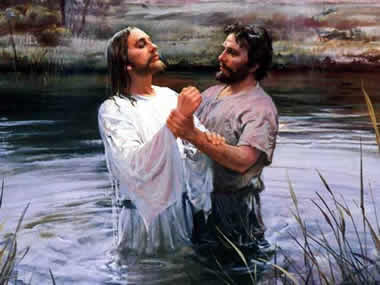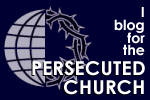Luke 3:1-6 (Sermon for the week of December 10th)

Gospel
Lk 3:1-6
In the fifteenth year of the reign of Tiberius Caesar,
when Pontius Pilate was governor of Judea,
and Herod was tetrarch of Galilee,
and his brother Philip tetrarch of the region
of Ituraea and Trachonitis,
and Lysanias was tetrarch of Abilene,
during the high priesthood of Annas and Caiaphas,
the word of God came to John the son of Zechariah in the desert.
John went throughout the whole region of the Jordan,
proclaiming a baptism of repentance for the forgiveness of sins,
as it is written in the book of the words of the prophet Isaiah:
A voice of one crying out in the desert:
“Prepare the way of the Lord,
make straight his paths.
Every valley shall be filled
and every mountain and hill shall be made low.
The winding roads shall be made straight,
and the rough ways made smooth,
and all flesh shall see the salvation of God.”
SERMON:
This week we read from Luke and I want to start out by covering a few historical points about the way this reading starts out the way it does and about who this man, Luke was.
Luke was a historian, evangelist and a physician. Colossians 4:14: "Luke, the beloved physician, and Demas, greet you."
The Gospel according Luke was written in 60 A.D. Luke was a close friend and companion of Paul. Luke was not an eyewitness to the life of Jesus Christ and little is known of his conversion or his early life. Luke was an evangelist by calling and a physician by profession. He earned the historian title by writing works of testimony and history. Luke not only wrote the Gospel of Luke but also the book of Acts and he traveled with Paul as a missionary. Luke was probably with Paul when he was martyred (2Timothy chapter 4). As to the rest of Luke’s life, we know very little.
Luke the historian, emerges with verses like this one found in the beginning of Chapter 3. So, let's break down the verses to learn the purpose why Luke includes these words in the opening verses of chapter 3 as an introduction for John the Baptist.
"In the fifteenth year of the reign of Tiberius Caesar,
when Pontius Pilate was governor of Judea,
and Herod was tetrarch of Galilee,
and his brother Philip tetrarch of the region
of Ituraea and Trachonitis,
and Lysanias was tetrarch of Abilene,
during the high priesthood of Annas and Caiaphas,"
For the sake of historical knowledge let's look at the commentary found in The Book of Antiquities by Flavius Josephus who is a reliable and well known JEWISH historian.
"These {verses} establish the year of the appearance of John the Baptist, and hence of the subsequent public career of Jesus. The 15th year of Tiberius was 28/29 as he reigned for 22 years and some 5 or 6 months, from 14-37. Pontius Pilate was procurator from 26-36, and Caiaphas was high priest over almost the same period, 26-35. Herod Antipas ruled Galilee from 4 BCE to 40 CE, and Philip his assortment of lands from 4 BCE to 34 CE As to "Lysanius", Luke is at variance with Josephus. Lysanius was killed by Marc Antony during the reign of Herod the Great.
The small territory of Lysanius was leased by Zenodorus (or "Zeno", War 1.20.4 398), and was later given by Caesar to Philip, as quoted above in one of the passages. After Philip's death this little region that had belonged to Lysanius, along with other pieces of Philip's territory, was given to Agrippa by the Emperor Claudius circa 40 CE (also cited above). This little territory never had a name; it was just referred to familiarly, something like "that piece of land that used to belong to Lysanius."
This is the only way Josephus refers to the property throughout his works. There is no evidence of a ruler named Lysanius at the time Luke speaks about in any case the land is too small for anyone to bother identifying its ruler as a means of specifying a moment in history.
Two explanations present themselves.The more interesting of these is that Luke worked from a written source he did not quite understand; he could have read about the time "when Herod was tetrarch of Galilee, and his brother Philip tetrarch of the region of Ituraea, and Trachonitis, and Abilene the tetrarchy of Lysanius." He could have misinterpreted the last clause as identifying another ruler of the time, rather than continuing the list of Philip's lands; particularly if the grammar had become a little garbled in transmission, perhaps during translation from the Aramaic. This would indicate Luke did not know enough about Judea to recognize that the "tetrarchy of Lysanius" was the way the local inhabitants referred to a little piece of land. The second, more mundane explanation is that Luke originally wrote the version we just surmised, but his text has become slightly corrupted during transmission to us."
Now let's review some history on who John the Baptist was...
"the word of God came to John the son of Zechariah in the desert."
John the Baptist's father was Zechariah who was a priest, and John's mother was Elizabeth, the cousin of Mary, the mother of Jesus. John the Baptist has direct lineage to Aaron the first High Priest who was the brother of Moses. The lineage of Mary the mother of Jesus and Elizabeth is important as well as their family relation as cousins. St. Hippolytus gives us a quick lesson on how the lineage of Elizabeth as a daughter of Aaron is true:
According to St. Hippolytus, "Mathan had three daughters: Mary, Soba, and Ann. Mary, the oldest, married a man of Bethlehem and was the mother of Salome; Soba married at Bethlehem also, but a "son of Levi", by whom she had Elizabeth; Ann wedded a Galilean (Joachim) and bore Mary, the Mother of God. Thus Salome, Elizabeth, and Mary, the mother of Jesus were first cousins, and Elizabeth, "of the daughters of Aaron" on her father's side, was, on her mother's side, the cousin of Mary.
Why all the history? First, we need to learn from the Scriptures, for understanding builds our faith. Instead of reading past the names and disregarding them as just "words" we need to acknowledge that the books of the New Testament tell us information for a reason. This all relates in this week's reading in an important way....
Luke, supplants the reality of John the Baptist's life in historical fact. Luke also shows us that John the Baptist is in direct lineage to Aaron as well as the Mother of Our Lord, Mary is also in the family lineage of Aaron. Elizabeth and Zacharias could not bear children, and an angel appeared to Zacharias to tell him about the coming of their son, John the Baptist. This event happened BEFORE the Immaculate Conception of Jesus.
Let's reflect again on one part of this weeks reading:
"during the high priesthood of Annas and Caiaphas,
the word of God came to John the son of Zechariah in the desert."
The "high priests" at the time of John the Baptist were Annas and then Caiaphas. Did the word of God come to them? NO! The Word of God came to an unknown man in the desert named John. God chooses who He wants! The coming of the Lord must be prepared and this honor was given to John.
So how did John preapre the way of the coming of our Lord Jesus?
"John went throughout the whole region of the Jordan,
proclaiming a baptism of repentance for the forgiveness of sins."
John BAPTISED using water to renew the people who REPENTED and were thus REBORN in a new life led by the King of kings. They awaited the Savior who would serve as the final price paid for our slavery to sin through sacrafice in order for God to forgive our sins. We may know the Father through the Son...the Son who is Jesus, serves as a mediator between God and us as long as we have faith which is an active living spiritual relationship with Jesus.
John became the "Baptist" who paved the way for Jesus to grant us salvation and this process began with BAPTISM.
Now we need to reflect on the meaning of Baptism, repentance, and the forgiveness of sins.
Baptism is: the sinning, worldly human dying and a new spiritual being rising. In other words, it is the death of one's earthly, sinning self and the rising of a new person of Spirit. Water is a symbol of life and death. By standing in the river, the sinning, worldly person is "drowned" by dunking their head. Out of the water rises a new person, born of the Spirit. How do you become a new person? By killing the old one and this is done by drowning the old person in the living, flowing Spiritual water and a new life is created, a life of the Spirit. John's baptism is for the body becasue the fleshly body is the source of sin.
Repentance is: the acknowledgement of the need to be cleansed from sin. It is acknowledging the sinner and the need for a Savior. It is the realization that you cannot live life YOUR way and the need for your old way's to die. Repentance is giving up control of your life to Jesus. It is not about the human who is "sorry" and it is not saying: "I am sorry, I won't do it again". Repentance is about saying "I can't control myself...you take control Lord!"
A new creature is born by baptism and has repented by giving up control to Jesus.
Forgiveness of sins is: the forgiveness of all worldly, fleshly sins through Jesus. If you commit 3,000 sins the first day and on the second day committed 1,000 sins, and on the third day committed 1 sin....you are the bigger sinner on the third day then on the second day because sins add up. The older you get, the worse sinner you become.
BUT
the very first sin you committed in your life is the one sin that kills you!
The 4001 sin doesn't kill you because you are already dead from the first sin you committed. You are just a worse sinner!
Jesus did not and cannot sin. If you are living in Jesus by repenting and giving over control of your life to Him, then the Spirit cannot sin! The flesh continues to sin, but the born again person who has a new life in Spirit cannot sin.
This is rock of truth that the Word of God brings forth for you to rejoice and be thankful for! Whom the Son sets free is free indeed!
The Gospel reading in Luke ends with the same words as found in Isaiah 40:3-5 and is a perfect way to end this sermon...hear the words again:
“Prepare the way of the Lord,
make straight his paths.
Every valley shall be filled
and every mountain and hill shall be made low.
The winding roads shall be made straight,
and the rough ways made smooth,
and all flesh shall see the salvation of God.”
God bless you and your families this week!
Technorati:bible-reading, bible reading, bible, preaching, christianity, sermon, sermons

















0 Comments:
Post a Comment
<< Home